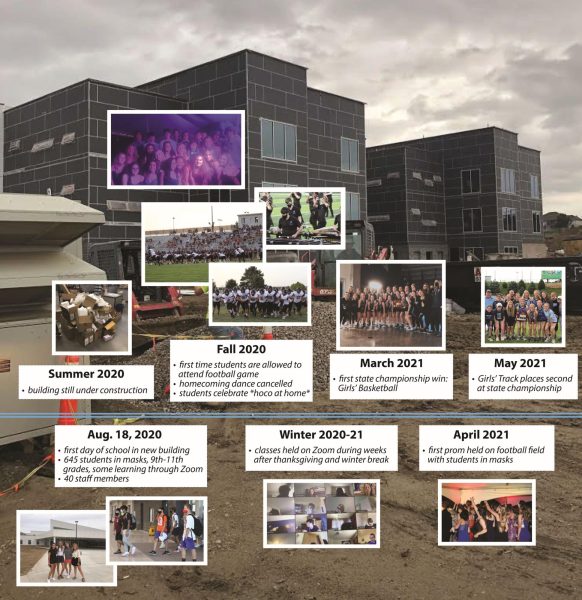For the Love of the Gains
A cost and benefits analysis of the supplements students use in the gym.
In search of improved strength, aesthetics, and abilities, many teenagers turn to fitness supplements for assistance, though these same supplements can impact a teen’s body and health in adverse ways.
In pursuit of their fitness goals, students use products to supplement their workouts such as pre-workout, creatine, and protein powder.
“I kept feeling unfocused, and I tried [pre-workout], and it was the most focused I’ve ever been working out,” sophomore Robert King said. “I felt like I got to work and I was focused on getting my stuff done and I was doing it at a high level,”
One of the main draws of using a pre-workout is the caffeine that can help improve focus to get a better and more intense workout in.
“There’s caffeine, stuff to give you energy that lasts, and it gives you better blood flow,” senior Isaiah Miller said. “And creatine helps with muscle endurance and a little bit with strength.”
Protein supplements can help when trying to reach certain weight goals, with recovery after a workout, or filling dietary needs.
“Some kids’ diets are deficient in protein,” Doscher said. “It’s a good way to get protein in their body if they’re trying to build muscle.”
It’s important for anyone using supplements to first check out the ingredient label before adding it into their regimen.
“If you can find a good protein that doesn’t have a ton of sugar in it, that can be beneficial for students, especially because you’re growing at a rapid rate in high school,” physical education teacher Annie Chadwick said.
Even with the possible risks, fitness goals are at the forefront of many students’ minds.
“The rewards from taking [pre-workout and supplements] heavily outweigh the risks,” Miller said. “There’s very few risks and quite a bit to gain.”
“I take creatine to get bigger, stronger, and lift more,” freshman Hunter Kahlandt. “Protein helps meet your protein goal, and pre-workout for more endurance and help with working out.”
The usage of fitness supplements and aids can also come with some unfavorable outcomes. Many consumers focus on the potential benefits and disregard these potential harms.
“There’s too much caffeine in pre-workout for me,” junior Shea Knudsen said. “It makes me too jittery.”
Teenagers can overuse these supplements, take the wrong amount, or take them when not needed.
“That’s the thing that a lot of kids mess up on,” King said. “They take three scoops of pre-workout or super overdo creatine because they think more is better, when in reality that’s just going to hurt them more than it helps.”
These products students use to improve workouts and gain muscle mass could actually be what is holding them back from achieving exactly that.
“I think we have too many kids that are overtraining because they are working out multiple times in the day,” Doscher said. “Any type of gains they feel like they might be getting from taking these supplements, they are probably losing based on their overtraining.”
By researching first, teenagers can view ingredients and see if the product comes from a safe, reputable manufacturer and avoid costly consequences.
“Supplements are not regulated by the FDA, so kids really don’t know what they truly are putting into their body,” Doscher said. “If you’re going to take the risk, you better really educate yourself because there are so many products out there. Non-reputable companies are doing some pretty shady things.”
On top of this, most people don’t work out often enough or hard enough to actually get the full benefits of what they are taking.
“You have to work at a pretty high intensity to be where [supplements] are going to be super beneficial.I’m not sure that a lot of students who use them regularly are meeting that,” Chadwick said. “If you’re resting the body, getting enough sleep, and following good nutritional advice, those factors are going to help improve performance more so than taking any supplement.”
Your donation will support the student journalists of Elkhorn North High School. Your contribution will allow us to purchase equipment and cover our annual website hosting costs.











